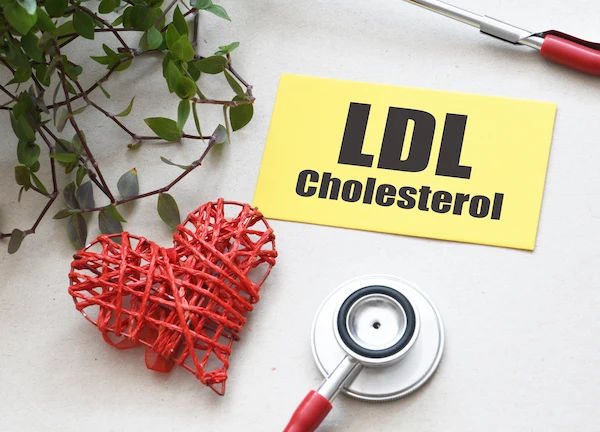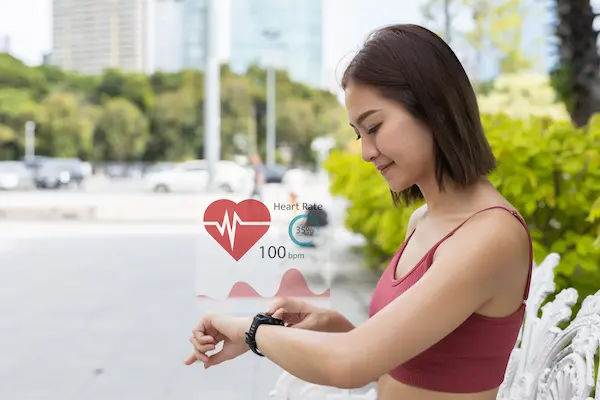- female
- 30 Years
- 29/01/2025
I'm concerned about my heart rateit's usually over 100, and I get palpitations a lot. When I'm just lying in bed, my heart rate gets between 110-120, and even just climbing up one flight of stairs sends it up to 160. My thyroid levels are normal, though I do have a thyroid nodule. My haemoglobin is at 9, and my BMI is normal. I also have spondyloarthropathy and hidradenitis suppurativa, so my CRP and ESR levels are high. I've attached an ECG from my Apple Watch that I took during the palpitations. Is such a high heart rate normal?
Answered by 1 Apollo Doctors
Based on your symptoms and medical history, it seems like you may be experiencing tachycardia, which is an abnormally high heart rate. Given your palpitations, breathlessness, and elevated heart rate even with minimal exertion, it is important to further evaluate the underlying cause. Considering your conditions and symptoms, I recommend you consult a cardiologist for a thorough evaluation. In the meantime, to help manage your symptoms, you can consider taking Metoprolol at a starting dose of 25mg once daily. This medication can help lower your heart rate and reduce palpitations. It is crucial to monitor your heart rate regularly and keep a record to share with your healthcare provider for a more accurate assessment and management plan.
Dr. Dhankecha Suggests...
Consult a Cardiologist
Answered 04/07/2025
0
0

More Cardiology Health Queries
View allI'm having this mild pain on the left side of my chest and left arm. It's a bit strange because my blood pressure and pulse rate are normal. It doesn't bother me when I'm walking, running, or even taking the stairs. The pain is mainly around the top left part of my chest and comes and goes, but is kind of always there. Should I be worried about this?
visit dermatologist for evaluation and appropriate management
Answered by 1 Apollo Doctors
I'm wondering if I should stop taking Concur cor 2.5 that I've been on for a month. I found out last month during a routine check-up that I had a 7.5 load of APCs supraventricular in the holter, which is why it was prescribed. But I didn't really have any symptoms before, and Im not feeling any now. Lots of folks say I might not have needed it in the first place, and I'm a bit worried that taking it when it's not necessary might have side effects. If I do decide to stop, what's the best way to taper off since I heard stopping beta blockers suddenly isn't good? Also, are there any follow-up tests I should be doing after I stop the medication? My echo was normal last month.
It is important not to stop beta blockers suddenly to avoid any rebound effects. Since you have been taking Concor Cor 2.5 for a month and are feeling fine, you can consider tapering off the medication gradually. I recommend reducing the dosage by half for a week, then halving it again for another week before stopping completely. This tapering schedule helps your body adjust gradually and reduces the risk of any withdrawal symptoms. Regarding side effects, taking Concor Cor 2.5 for a month is generally safe, especially if you have not experienced any bothersome symptoms. Common side effects may include fatigue, dizziness, or changes in heart rate, but if you have not noticed any issues, it is unlikely that you will experience them now. Since your echo results were normal last month, there may not be an immediate need for follow-up tests after stopping the medication. However, it is always a good idea to consult with your healthcare provider before making any changes to your medication regimen to ensure it is safe and appropriate for your individual health needs.
Answered by 1 Apollo Doctors
I'm 27 and have had no bad habits. For the last eight months, I've been experiencing these quick chest pains on the left side; they just last about 5 to 15 seconds, and they come and go. I've been to the cardiologist and had around 20 ECGs, an echo, and a lipid profile done, and everything came back normal. The thing is, I don't feel any pain during heavy work, just at random times. I'm worried and wondering if this is a heart issue or maybe something physiological? Also, at home, my heart rate is slow, but as soon as I enter the hospital and the tension hits, my heart rate spikes. What could be going on?
It sounds like you may be experiencing episodes of non-cardiac chest pain, especially since your cardiology checkups including ECG, echo, and lipid profile have come back normal. Non-cardiac chest pain can be caused by issues such as muscle strain, anxiety, or gastrointestinal problems. Since your symptoms have been ongoing for eight months and are not related to heavy work, it is less likely to be a heart-related issue. To help with the chest pain, you can try taking over-the-counter pain relievers like acetaminophen. Additionally, practicing relaxation techniques or deep breathing exercises may help with episodes of high heart rate related to tension. If the chest pain persists or worsens, it would be advisable to consult with a doctor for further evaluation and management.
Answered by 1 Apollo Doctors
Disclaimer: Answers on Apollo 247 are not intended to replace your doctor advice. Always seek help of a professional doctor in case of an medical emergency or ailment.


_0.webp)
_1.webp)

_3.webp)